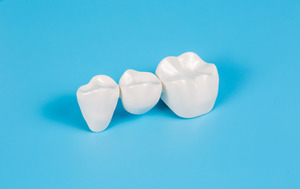
A dental bridge is a common dental restoration used to replace one or more missing teeth. While bridges are designed to be durable and long-lasting, they can fail due to various factors. Understanding these factors is crucial for maintaining oral health and preventing potential complications. Here are three primary reasons why dental bridges may fail, along with some preventive measures to ensure their longevity.
Poor Oral Hygiene
One of the leading causes of dental bridge failure is poor oral hygiene. When plaque and bacteria accumulate around the bridge and along the gum line, it can lead to gum disease and decay of the supporting teeth. Over time, this can weaken the structure of the bridge and cause it to become loose or dislodged.
To prevent this, it’s essential to maintain good oral hygiene practices, including brushing twice a day, flossing daily, and using an antiseptic mouthwash. Additionally, regular dental check-ups and cleanings are crucial for removing plaque and tartar buildup that cannot be removed through regular brushing and flossing.
Structural Damage
Another common cause of dental bridge failure is structural damage to the bridge itself. This can occur due to various reasons, such as trauma from biting down on hard objects, teeth grinding (bruxism), or natural wear and tear over time. When the bridge is damaged, it may become loose or break, necessitating repair or replacement.
To minimize the risk of structural damage, patients with dental bridges should avoid chewing on hard foods, using their teeth as tools, and seek treatment for bruxism if necessary. Wearing a nightguard can help protect the bridge and surrounding teeth from the harmful effects of teeth grinding during sleep.
Poorly Fitted Bridge
A poorly fitted dental bridge is also a significant factor that can lead to failure. If the bridge does not fit snugly against the adjacent teeth or if there are gaps between the bridge and the gum line, it can allow bacteria to accumulate, leading to decay and gum disease. Additionally, a poorly fitted bridge can cause discomfort and difficulty chewing.
To ensure a proper fit, it’s essential to work with a skilled and experienced dentist who will carefully design and install the bridge. Regular follow-up appointments are also crucial to monitor the fit of the bridge and make any necessary adjustments.
While dental bridges are an effective solution for replacing missing teeth, they are not immune to failure. By understanding the common causes of bridge failure and taking preventive measures, patients can help ensure the longevity of their dental restorations and maintain optimal oral health for years to come. Regular dental check-ups, good oral hygiene practices, and avoiding habits that can damage the bridge are essential for preventing complications and preserving a healthy smile.
About Our Practice
Welcome to Harrisonburg Family and Cosmetic Dentistry, where smiles are our specialty and community is our pride. Led by Dr. Mario DeNicola and Dr. Monisha Khanna, our practice thrives on a commitment to modern dentistry and compassionate care. From initial consultation to final results, we prioritize your comfort and oral health, believing everyone deserves to look and feel their best. Our team is dedicated to providing a safe, positive environment, ensuring both patients and staff flourish. With flexible scheduling and advanced services including dental implants and custom dentures, we offer comprehensive solutions tailored to your needs.
If you have any questions about a dental bridge, we can be reached at our website or by phone at (540) 432-6616.

